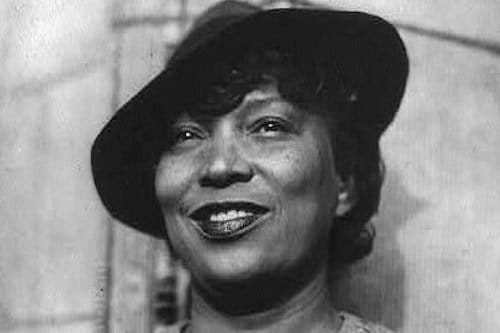A Vital Addition to African-American History

Jennifer Hijazi introduces PBS NewsHour readers to an unpublished manuscript by Zora Neale Hurston, a document that combines oral history with literary biography to tell the story of Cudjo Lewis, "the last surviving captive of an American slave ship." Hurston interviewed Cudjo Lewis several times in 1931, thanks to a WPA grant, in order to fully document Lewis's experience aboard the Clotilda—one of the last ships that brought slaves to America. Hijazi writes that Hurston's "manuscript of Lewis’ life, called 'Barracoon: The Story of the Last "Black Cargo",' was recently brought out of obscurity from the archives at Howard University and will be published on May 8, decades after her attempts to find a publisher failed." Let's pick up there:
While Hurston’s literary portrait of Lewis’ life provided an intimate account of the legacy of slavery, it met with criticism from many black academics and thinkers of the time, who felt the manuscript was counterproductive to the mission of uplifting the perception of African Americans among the dominant white society.
Hurston insisted on writing Lewis’ story the way he spoke it: in a thick, vernacular dialect that left many of her black contemporaries worried the book would reinforce stereotypes.
An author, anthropologist and Harlem Renaissance legend, Hurston was also a folklorist, dedicated to strict, accurate field transcriptions and the idea that black culture was not monolithic, according to Anna Lillios, a professor of English at the University of Central Florida.
Lillios said Hurston’s mentor — “father of anthropology” Franz Boaz — urged her “to collect the folklore [and] remnants” of an African-American culture he felt was disappearing.
So Hurston proposed anthropological research on Florida folklife to the the Federal Writers Project, a 1935 program implemented through the United States Work Progress Administration (WPA) as a means to employ researchers and historians.
Stephen Winick, editor and folklorist at the Library of Congress’ American Folklife Center, where a collection of recordings from Hurston’s Florida Folklife project can be found, said Hurston was paid by the WPA and Florida government to collect folklore local to areas of the state where she grew up.
Learn more at NewsHour.


